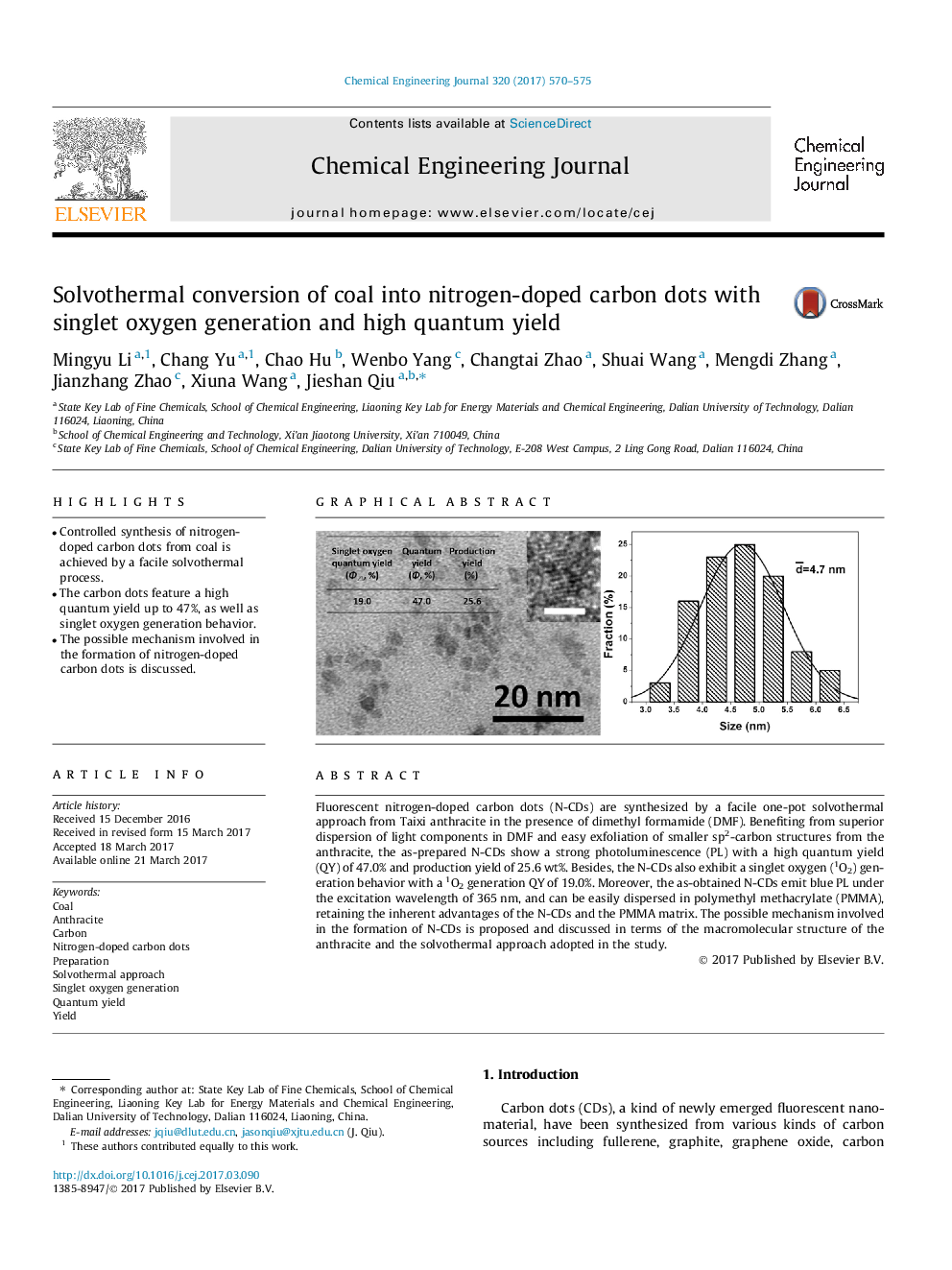| Article ID | Journal | Published Year | Pages | File Type |
|---|---|---|---|---|
| 6466055 | Chemical Engineering Journal | 2017 | 6 Pages |
â¢Controlled synthesis of nitrogen-doped carbon dots from coal is achieved by a facile solvothermal process.â¢The carbon dots feature a high quantum yield up to 47%, as well as singlet oxygen generation behavior.â¢The possible mechanism involved in the formation of nitrogen-doped carbon dots is discussed.
Fluorescent nitrogen-doped carbon dots (N-CDs) are synthesized by a facile one-pot solvothermal approach from Taixi anthracite in the presence of dimethyl formamide (DMF). Benefiting from superior dispersion of light components in DMF and easy exfoliation of smaller sp2-carbon structures from the anthracite, the as-prepared N-CDs show a strong photoluminescence (PL) with a high quantum yield (QY) of 47.0% and production yield of 25.6Â wt%. Besides, the N-CDs also exhibit a singlet oxygen (1O2) generation behavior with a 1O2 generation QY of 19.0%. Moreover, the as-obtained N-CDs emit blue PL under the excitation wavelength of 365Â nm, and can be easily dispersed in polymethyl methacrylate (PMMA), retaining the inherent advantages of the N-CDs and the PMMA matrix. The possible mechanism involved in the formation of N-CDs is proposed and discussed in terms of the macromolecular structure of the anthracite and the solvothermal approach adopted in the study.
Graphical abstractDownload high-res image (339KB)Download full-size image
